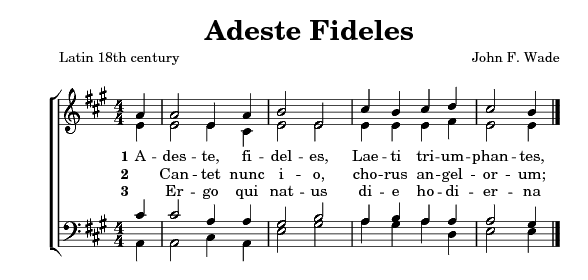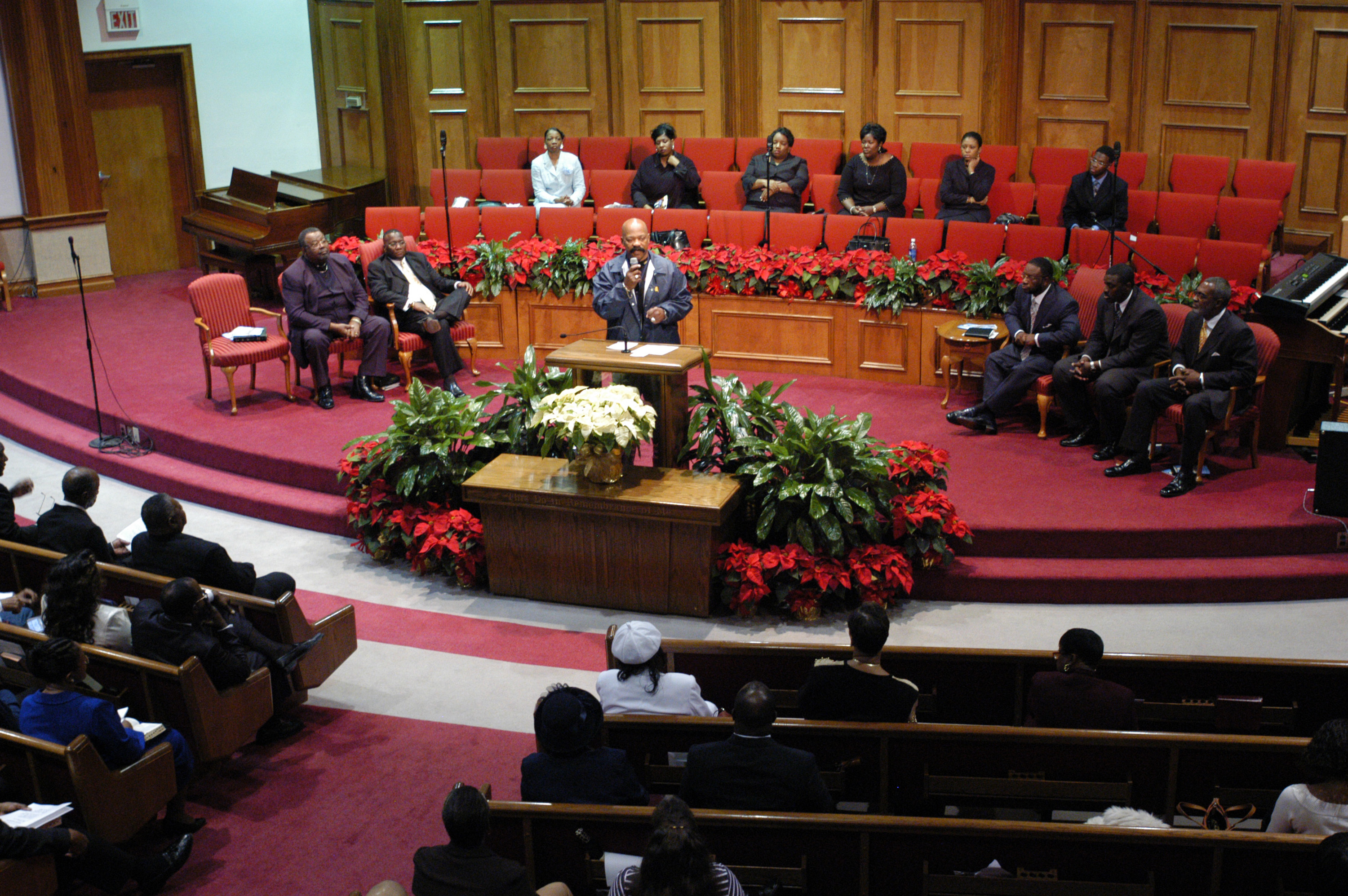|
A Selection Of Hymns For Public Worship
''A Selection of Hymns for Public Worship'' is a hymn book compiled by William Gadsby, a minister of the Strict Baptists, Gospel Standard Strict Baptists in England. First published in the 19th century, it is still in current use. History William Gadsby, a Strict and Particular Baptist minister, first published his selection of hymns in 1814 in Manchester, printed at the printing works owned by his son John Gadsby. William Gadsby published a later edition in 1838. After his death a further enlarged edition was published including a second supplement selected by J C Philpot, another Strict Baptist Minister. It was written to counteract what Gadsby believed to be Arminian and Legalism (theology), legalistic tendencies in some of Isaac Watts' ''Psalms and Hymns''. Nevertheless Gadsby's Selection of Hymns does include many hymns by Isaac Watts. Contents This hymnal contains 1156 hymns (words only) by various authors. These are primarily, but not exclusively, from the calvinism, ... [...More Info...] [...Related Items...] OR: [Wikipedia] [Google] [Baidu] |
Hymn
A hymn is a type of song, and partially synonymous with devotional song, specifically written for the purpose of adoration or prayer, and typically addressed to a deity or deities, or to a prominent figure or personification. The word ''hymn'' derives from Greek (''hymnos''), which means "a song of praise". A writer of hymns is known as a hymnist. The singing or composition of hymns is called hymnody. Collections of hymns are known as hymnals or hymn books. Hymns may or may not include instrumental accompaniment. Although most familiar to speakers of English in the context of Christianity, hymns are also a fixture of other world religions, especially on the Indian subcontinent (''stotras''). Hymns also survive from antiquity, especially from Egyptian and Greek cultures. Some of the oldest surviving examples of notated music are hymns with Greek texts. Origins Ancient Eastern hymns include the Egyptian ''Great Hymn to the Aten'', composed by Pharaoh Akhenaten; the Hurrian ''Hy ... [...More Info...] [...Related Items...] OR: [Wikipedia] [Google] [Baidu] |
Anne Steele
Anne Steele (pen name, Theodosia; 171711 November 1778) was an English Baptist hymn writer and essayist. For a full century after her death, she filled a larger place in United States and British hymnals than any other woman. At an early age, Steele showed a taste for literature, and would often entertain her friends by her poetical compositions. To a fervour of devotion, which increased as she got older, she developed a fondness for sacred literature, which led her to compose a considerable number of pieces in prose and verse. These works were published using the pseudonym, "Theodosia". Portions of these spiritual lyrics soon found their way into collections, while the diffidence of the authoress because of her pen name, left her comparatively unknown beyond the circle of her personal friends. In 1760, two volumes, appeared under the title of ''Poems on Subjects chiefly Devotional, by Theodosia''. After her death, which occurred in 1778, a new edition was published with an additi ... [...More Info...] [...Related Items...] OR: [Wikipedia] [Google] [Baidu] |
1814 In Christianity
Events January * January 1 – War of the Sixth Coalition – The Royal Prussian Army led by Gebhard Leberecht von Blücher crosses the Rhine. * January 3 ** War of the Sixth Coalition – Siege of Cattaro: French garrison surrenders to the British after ten days of bombardment. ** War of the Sixth Coalition – Siege of Metz: Allied armies lay siege to the French city and fortress of Metz. * January 5 – Mexican War of Independence – Battle of Puruarán: Spanish Royalists defeat Mexican Rebels. * January 11 – War of the Sixth Coalition – Battle of Hoogstraten: Prussian forces under Friedrich Wilhelm Freiherr von Bülow defeat the French. * January 14 ** Treaty of Kiel: Frederick VI of Denmark cedes the Kingdom of Norway into personal union with Sweden, in exchange for west Pomerania. This marks the end of the real union of Denmark-Norway. ** War of the Sixth Coalition – Siege of Antwerp: Allied forces besiege French Antwe ... [...More Info...] [...Related Items...] OR: [Wikipedia] [Google] [Baidu] |
1814 Non-fiction Books
Events January * January 1 – War of the Sixth Coalition – The Royal Prussian Army led by Gebhard Leberecht von Blücher crosses the Rhine. * January 3 ** War of the Sixth Coalition – Siege of Cattaro: French garrison surrenders to the British after ten days of bombardment. ** War of the Sixth Coalition – Siege of Metz: Allied armies lay siege to the French city and fortress of Metz. * January 5 – Mexican War of Independence – Battle of Puruarán: Spanish Royalists defeat Mexican Rebels. * January 11 – War of the Sixth Coalition – Battle of Hoogstraten: Prussian forces under Friedrich Wilhelm Freiherr von Bülow defeat the French. * January 14 ** Treaty of Kiel: Frederick VI of Denmark cedes the Kingdom of Norway into personal union with Sweden, in exchange for west Pomerania. This marks the end of the real union of Denmark-Norway. ** War of the Sixth Coalition – Siege of Antwerp: Allied forces besiege French Antw ... [...More Info...] [...Related Items...] OR: [Wikipedia] [Google] [Baidu] |
Protestant Hymnals
Protestantism is a Christian denomination, branch of Christianity that follows the theological tenets of the Reformation, Protestant Reformation, a movement that began seeking to reform the Catholic Church from within in the 16th century against what its followers perceived to be growing Criticism of the Catholic Church, errors, abuses, and discrepancies within it. Protestantism emphasizes the Christian believer's justification by God in faith alone (') rather than by a combination of faith with good works as in Catholicism; the teaching that Salvation in Christianity, salvation comes by Grace in Christianity, divine grace or "unmerited favor" only ('); the Universal priesthood, priesthood of all faithful believers in the Church; and the ''sola scriptura'' ("scripture alone") that posits the Bible as the sole infallible source of authority for Christian faith and practice. Most Protestants, with the exception of Anglo-Papalism, reject the Catholic doctrine of papal supremacy, ... [...More Info...] [...Related Items...] OR: [Wikipedia] [Google] [Baidu] |
List Of English-language Hymnals By Denomination
Hymnal A hymnal or hymnary is a collection of hymns, usually in the form of a book, called a hymnbook (or hymn book). Hymnals are used in congregational singing. A hymnal may contain only hymn texts (normal for most hymnals for most centuries of Chri ...s, also called hymnbooks (or hymn books) and occasionally hymnaries, are books of hymns sung by religious congregations. The following is a list of English-language hymnals by denomination. Liturgical churches See note below. Anglican *Anglican Church of Canada **A Selection of Psalms and Hymns for Every Sunday and Principal Festiva (1834) **A Selection of Psalms and Hymns (1835) **A Selection of Psalms, Hymns and Anthems (1842) **A Selection of Psalms and Hymns for Diocese of Nova Scotia (1859) **A Church Hymn Book (1861) **A Selection of Hymns for the Use of Church of England Sunday Schools (1862) **Hymns for Public Worship in the Diocese of Fredericton (1870) **Hymns for use in Sunday Schools (1871) **Church hym ... [...More Info...] [...Related Items...] OR: [Wikipedia] [Google] [Baidu] |
Reformed Baptist
Reformed Baptists (sometimes known as Particular Baptists or Calvinistic Baptists) are Baptists that hold to a Calvinist soteriology (salvation). The first Calvinist Baptist church was formed in the 1630s. The 1689 Baptist Confession of Faith was written along Calvinist Baptist lines. The name “Reformed Baptist” dates from the latter part of the 20th Century to denote Baptists who have adopted elements of Reformed theology, but retained Baptist ecclesiology. Variations Strict Baptists Groups calling themselves Strict Baptists are often differentiated from those calling themselves "Reformed Baptists", sharing the same Calvinist doctrine, but differing on ecclesiastical polity; "Strict Baptists" generally prefer a congregationalist polity. The group of Strict Baptists called Strict and Particular Baptists are Baptists who believe in a Calvinist interpretation of Christian salvation. The Particular Baptists arose in England in the 17th century and took their name from the ... [...More Info...] [...Related Items...] OR: [Wikipedia] [Google] [Baidu] |
Hymn Tune
A hymn tune is the melody of a musical composition to which a hymn text is sung. Musically speaking, a hymn is generally understood to have four-part (or more) harmony, a fast harmonic rhythm (chords change frequently), with or without refrain or chorus. From the late sixteenth century in England and Scotland, when most people were not musically literate and learned melodies by rote, it was a common practice to sing a new text to a hymn tune the singers already knew which had a suitable meter and character. There are many hymn tunes which might fit a particular hymn: a hymn in Long Metre might be sung to any hymn tune in Long Metre, but the tunes might be as different as those tunes that have been used for centuries with hymns such as ''Te lucis ante terminum'', on one hand, and an arrangement of the calypso tune used with ''Jamaica Farewell'', on the other. Hymnal editors Editors bring extensive knowledge of theology, poetry, and music to the process of compiling a new hymn ... [...More Info...] [...Related Items...] OR: [Wikipedia] [Google] [Baidu] |
Primitive Baptist
Primitive Baptists – also known as Hard Shell Baptists, Foot Washing Baptists or Old School Baptists – are conservative Baptists adhering to a degree of Calvinist beliefs who coalesced out of the controversy among Baptists in the early 19th century over the appropriateness of mission boards, tract societies, and temperance societies. The adjective "primitive" in the name is used in the sense of "original". History The controversy over whether churches or their members should participate in mission boards, Bible tract societies, and temperance societies led the Primitive Baptists to separate from other general Baptist groups that supported such organizations, and to make declarations of opposition to such organizations in articles like the ''Kehukee Association Declaration of 1827''. The Kehukee Primitive Baptist Church released a proclamation that they rejected formal service institutions outside of the church. The declaration proposed that "Upon examination, it was found ... [...More Info...] [...Related Items...] OR: [Wikipedia] [Google] [Baidu] |
India Paper
India paper is a type of paper which from 1875 has been based on bleached hemp and rag fibres, that produced a very thin, tough opaque white paper. It has a basis weight of 20 pounds (30 g/m2), yet bulks 1,000 pages to the inch. It became popular in particular for the printing of Bibles, which could be made relatively small and light while remaining legible. The 1911 Encyclopædia Britannica boasted, "Printed on thin, but strong opaque India paper, each volume but one inch in thickness." The process was used particularly by the Oxford University Press and its paper suppliers. The name arose because the paper imitated fine papers imported from the Indian subcontinent. India paper has also often been used for the printing of die proofs of postage stamps. References See also *Bible paper *Onionskin Onionskin or onion skin is a thin, lightweight, strong, often translucent paper. Though not made from onions, it superficially resembles their thin, papery skins. It was usually ... [...More Info...] [...Related Items...] OR: [Wikipedia] [Google] [Baidu] |
Unconditional Election
Unconditional election (also called sovereign election or unconditional grace) is a Calvinist doctrine relating to predestination that describes the actions and motives of God prior to his creation of the world, when he predestined some people to receive salvation, the elect, and the rest he left to continue in their sins and receive the just punishment, eternal damnation, for their transgressions of God's law as outlined in the Old and New Testaments of the Bible. God made these choices according to his own purposes apart from any conditions or qualities related to those persons. The counter-view to unconditional election is the Arminian view of conditional election, the belief that God chooses for eternal salvation those who he foreknows will exercise their free will to respond to God's prevenient grace with faith in Christ. God's election was for a clear unalterable purpose, to elect those who will believe. Summary In Calvinist theology, unconditional election is considered ... [...More Info...] [...Related Items...] OR: [Wikipedia] [Google] [Baidu] |
John Cennick
John Cennick (12 December 1718 – 4 July 1755) was an English Methodist and Moravian evangelist and hymnwriter. He was born in Reading, Berkshire, England to an Anglican family and raised in the Church of England. According to Moravian Bishop E. R. Hasse, Cennick's family was from Bohemia, and left as a result of persecutions following the Battle of White Mountain. In England, his family became Quakers when his grandfather became influenced by George Fox. Early life At age nine, he heard his dying aunt proclaim "Last night the Lord stood by me and invited me to drink of the fountain of life freely and I shall stand before the Lord as bold as a lion." The words stayed with him for many years as the focus of his own fear of death and concern for his salvation. Being from a family of humble means, John was compelled, at the age of 13, to leave school and seek an apprenticeship. He made eight trips to London looking for a position and, failing, became somewhat of a dissolute you ... [...More Info...] [...Related Items...] OR: [Wikipedia] [Google] [Baidu] |

.png)





.jpg)